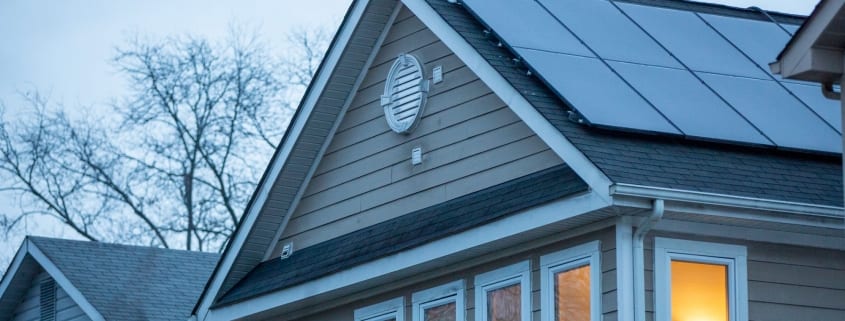3 Factors to Consider Before Going Solar
You can see them on fields of open land, on top of people’s homes and even on backpacks. Solar panels are becoming much cheaper and more prevalent in the United States and across the world. Because of this, more homeowners are considering installing solar panels on their own rooftops. Whether you’re interested in saving money or helping the environment, there are many benefits from installing rooftop solar panels. However, there are several things to think about before making the jump. Here are three key factors to consider before installing solar panels on your own home:
Location
Does the town or state you live in typically get a lot of sunlight? Is your location prone to natural disasters? The best areas for rooftop solar panels are those that generally receive a lot of sunlight throughout the year and are less likely to have natural disasters that could damage solar equipment. Even if you don’t live in the sunniest state, this doesn’t mean solar panels won’t work for you. While lesser-lit areas may not be as efficient, they will still receive a substantive amount of solar energy. Areas that are prone to natural disasters can also take advantage of unique ways to prevent damage, for example, different mounting procedures to protect against hurricanes.
Additionally, depending on your location, many states also have incentives and rebates for installing residential solar panel systems, on top of the federal solar tax credit of 26% in 2020, which is available to all states. Being aware of state-specific incentives can help you make your decision before installing a residential solar panel system.
Roof Condition
Two huge factors of solar panel efficiency are the direction your roof slant faces and the angle of the slant. South-facing roofs will receive the most sunlight throughout the day, and roof angles between 30 and 45 degrees work well in most cases. However, even if your home does not have a south-facing roof, you can still have an economically-viable solar panel system.
The material of your roof is also crucial since some roof types are better situated to have solar panels than others, such as composite roofing or tile roofs. Despite this, solar panels can be installed on practically any type of roof material, although more complicated roof materials, like tar and gravel roofs, may be more expensive and require additional expertise.
Lastly, ensuring the good condition of your roof plays a large part to help make sure that your panels are situated as safely as possible.
Financing Options
There are several different options when considering how to pay for rooftop solar panels. One of the simplest options is a solar loan, which allows you to buy and own your entire system. Generally, you should save enough money on your electric bills from the solar panels to pay off the cost of the monthly loan payment.
A solar lease is another financing option where a third-party owner (TPO) installs solar panels on your home and charges you an electricity rate below the market rate. The TPO owns and maintains the panels, and at the end of the lease will offer to sell you the panels or remove them. However, you will not be eligible for rebates or incentives, since the TPO owns the system.
Another option is a power purchase agreement (PPA) which is like a solar lease. The main difference is that you pay a pre-determined monthly amount based on the actual energy produced, instead of a flat monthly fee that a solar lease would require.
Before you decide on a financing option, we strongly encourage you to talk with your local electric cooperative first to determine if installation is right for you – and if there are other measures you can take to save energy (and money) at home.
These three considerations provide a great starting point for learning how to go solar, but it should be noted this list is not complete. There are additional important details to consider, such as solar panel type, potential battery installation and how long you plan to live at your current home.
Remember, your electric cooperative is a great resource to discuss the benefits and considerations of rooftop solar, especially before making any agreements with solar vendors. Choosing the right professionals and companies to install your solar panels is an important choice and working with your electric co-op can help you to make the best decision possible.
Maria Kanevsky is a program analyst for the National Rural Electric Cooperative Association, the national trade association representing more than 900 local electric cooperatives. From growing suburbs to remote farming communities, electric co-ops serve as engines of economic development for 42 million Americans across 56 percent of the nation’s landscape.





Leave a Reply
Want to join the discussion?Feel free to contribute!